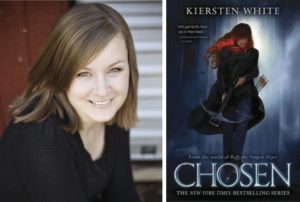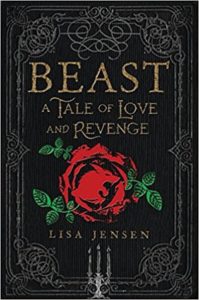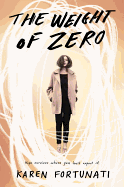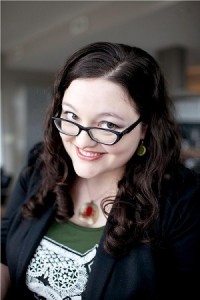 Bookshop is so excited to announce that the amazing Kiersten White, author of some of our favorite tiles will be visiting Bookshop Santa Cruz on Friday, January 10th at 7pm.
Bookshop is so excited to announce that the amazing Kiersten White, author of some of our favorite tiles will be visiting Bookshop Santa Cruz on Friday, January 10th at 7pm.
In anticipation of her visit Kiersten kindly agreed to answer a few questions from Leala, a member of the Teen Book Crew.
Do you relate to any of your characters from Chosen? If so, which one(s)?
There comes a terrible moment in every person’s life when you realize you now relate to the parental figures more than anyone else. I feel a lot of compassion for Cillian’s mom, Esther. She thought she was doing her best to protect him, but she ended up hurting him. That’s one of my biggest fears as a parent—that I’ll be so focused on what I think my child needs, I won’t see what they actually need. Nina’s mother had a similar dynamic with her children. In her extreme efforts to keep Nina and Artemis safe, she ended up damaging her relationship with both of them.
That being said, I’m absolutely the Jade of any group. Can I sleep? Good. I will be sleeping.
What’s one of your favorite books that does not get the attention it deserves?
I really love the Lumatere Chronicles by Melina Marchetta. It’s a brilliant fantasy trilogy that is sharp and brutal and doesn’t shy away from really difficult questions, but does so in a deeply human way.
What was one of the reasons that you sent Nina down a darker path?
I really struggled to figure out what this book was about. And by that I don’t mean the plot, I mean the emotional core of the book. If the first book was about the nature of being Chosen—which inherently means you did not choose, it was chosen for you—I realized the second book should be about coping with trauma. Bad things happen and they change you. What do you do with that? In Nina’s case, I made the change literal, because a fantastic thing genre does is let you tell true stories, but with everything heightened.
So much of navigating being a teenager approaching adulthood is reconciling who you thought you were with who you are becoming and who you want to become. And to do that, sometimes we have to walk straight through our pain to learn who we are on the other side of it.
Was there an incentive for adding Artemis’s side into Chosen?
In Slayer, we had interstitial chapters from the point of view of someone who had spent years trying to kill one or both of the twins. Initially I was going to have that same format from the point of view of the big bad, but in this case, it didn’t have the emotional resonance I wanted. Artemis did. I loved exploring how she reacted to pain in contrast to how Nina did, and it was really fun giving readers information that Nina didn’t have. Delicious dramatic irony! Plus, I always love the push and pull of siblings. I have four siblings, and so much of who I was as a teenager was in relation to them.
Through your years of writing, who has given you the most valuable piece of writing advice, and what was it?
I honestly couldn’t tell you who—I’m at sixteen books and a decade in publishing!—but I think the best piece of advice for any writer is this: the only thing you can control is the writing. You can’t control when or how your books sell, or how readers receive them, or even your covers (I continue to luck out in that regard). So make sure you fiercely protect your creative space and nurture the things that made you fall in love with writing in the first place.



